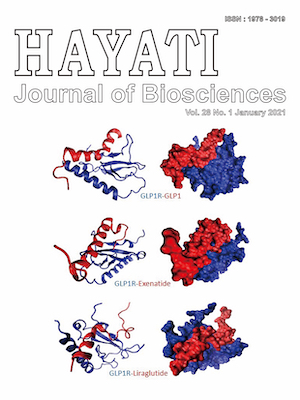Characteristics of The Three Cultivar Physiological Growth of Jatropha curcass L. in Two Different Locations Based on Topography
Abstract
The purpose of this study was to reveal the sensitivity of cross-location based on topography by giving different FMA consortiums to physiological growth characteristics in three Jatropha curcass L. cultivars. Based on these objectives, the nature of this research is verification. Experiments were carried out in two different places based on topography. The trial time starts from November 2017 to May 2018. Experiments A simple randomized block design (RBD) pattern consisting of fifteen treatment combinations is repeated twice. The experimental results showed that the dose of 10 gr FMA consortium (glomus sp., Acaulospora sp., Gigaspora sp.). With the same spore density gave the best performance of Jatropha plant growth in two different locations based on topography. Observation of chlorophyll content in leaves (age 21, 63, 21 DAP in two locations), plant height (age 21, 63, 21 DAP in two locations), stem diameter (age 21, 63, 21 DAP in two locations) and number of branches secondary (age 21 DAP in two locations) there was a significant effect on the single factor of giving the FMA consortium but there was no interaction between location and treatment.
Downloads
HAYATI J Biosci is an open access journal and the article's license is CC-BY-NC. This license lets others distribute, remix, tweak, and build upon author's work, as long as they credit the original creation. Authors retain copyright and grant the journal/publisher non exclusive publishing rights with the work simultaneously licensed under a https://creativecommons.org/


















.png) IPB University
IPB University Department of Biology
Department of Biology The Indonesian Biological Society
The Indonesian Biological Society 

